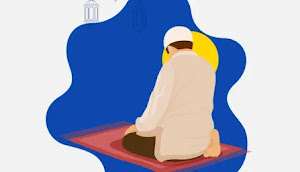
MALANG —The first global Islamic calendar, known as the urfi or arithmetical/tabular calendar, was introduced. Its exact date of creation remains uncertain, but some sources attribute it to al-Battani (before 858 – 929).
In the seminar of the Muhammadiyah Council for Thought and Judgment at Universitas Muhammadiyah Malang (UMM) on Saturday (July 22), the Chairman of Muhammadiyah Syamsul Answar mentioned that the urfi calendar has shortages.
First, the urfi calendar lacks synchronization with the moon’s actual movements, resulting in discrepancies between calculated lunar dates and the moon’s positions in the sky. This can cause variations in determining lunar dates.
Second, the urfi calendar lacks consistency in scheduling leap years, leading to uncertainty in identifying them.
Thirdly, disputes over the beginning of the Hijri year, month, and day create inconsistencies in dating among various groups or communities. This can result in differences in dating among different groups or communities in establishing the start of the Hijri year.
Fourth, the urfi calendar’s fixed time of Ramadan leads to it always occurring in the same season, disregarding the actual cycle of seasons.
Fifth, the urfi calendar’s unallocated leftover time creates issues in adjusting the length of months and the gaps between them periodically.
Due to these weaknesses, there is a need to find a more accurate and comprehensive alternative to unify the Islamic calendar globally. This has motivated Muhammadiyah to propose and develop the Single Global Hijri Calendar (SGHC) with principles and validity criteria that are more accurate and better suited to the needs of Muslims worldwide.
Thus, those weaknesses highlight the necessity of seeking a more accurate and comprehensive alternative to achieve global unity in the Islamic calendar.
In response to this, Muhammadiyah has proposed and developed a global Islamic calendar with improved principles and validity criteria to better suit the needs of Muslims worldwide.
The Pioneer of the First Global Islamic Calendar
The global Islamic (SGHC) has a fascinating history in its endeavor to unify the dating of Muslims worldwide. It was first proposed by a hadith scholar Ahmad Muhammad Syakir in 1939, advocating for a consistent start of the month regardless of regional and geographical variations, while acknowledging potential differences in the moon’s setting time.
In 1998, the Ummul Qura calendar adopted Syakir’s parameters. However, a year later, during the Conference of the Foreign Ministers of the OIC Member States in Ouagadougou, Burkina Faso, the calendar underwent further adjustments with the addition of new parameters.
These new parameters indicated that the new month would begin if the hilal (crescent moon) and the sun set before sunset in Mecca or in countries that share part of the night with it.
In 2003, Saudi Arabia made further adjustments to the global Islamic calendar following the case of the Rajab 1424 Hijri. The decree of the 26th Conference of Foreign Ministers of Islamic Countries led to the adoption of the wujudul hilal calendar, which remains in effect today.
The reference point for determining the start of the month is in Mecca, specifically at the Kaaba. In 2008, the Islamic World Educational, Scientific, and Cultural Organization (ISESCO) adopted the global Islamic calendar with more specific parameters.
According to these parameters, the new month will begin if the hilal is observed before 12:00 GMT. If the hilal is observed after 12:00 GMT, the new month will start on the following day.
The historical journey of the global Islamic calendar reflects the continuous efforts of Islamic experts and authorities to achieve consensus in unifying the dating of Muslims worldwide.
Despite challenges and differing perspectives, the adoption of various parameters represents a significant step forward in achieving the shared goal of creating a unified accurate global Islamic calendar.***
Source: muhammadiyah.or.id









.jpeg)










